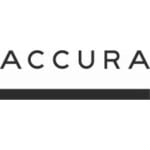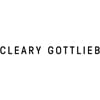-
What is the relevant legislative framework?
Chilean competition law is regulated by Decree-Law No. 211 of 1973 (Competition Act or “DL 211). Since 2004, the authorities in charge of protecting and promoting competition in Chile have been the Chilean Competition Authority (FNE) and the Chilean Competition Tribunal (TDLC). Additionally, and according to the provisions of the DL 211 (Article 27), any final judgment of the TDLC that imposes any of the sanctions contemplated in the Law may be appealed to the Supreme Court. Hence, the Supreme Court can also review and resolve cases related to the defense of competition.
In Chile, cartels are sanctioned both administratively and criminally. On the one hand, they are prohibited under Article 3, letter a) of the Competition Act, in the following terms: “The following, among others, shall be considered as facts, acts or agreements that prevent, restrict or hinder competition or that tend to produce such effects: a) agreements and concerted practices among competitors, and which consist of fixing sale or purchase prices, limiting output, assignment of market zones or quotas, affecting the outcome of tender processes, as well as agreements and concerted practices that, conferring market power to the competitors, consist of the determination of marketing terms and conditions, or the exclusion of current or potential competitors”.
According to Article 20 of DL 211, the statute of limitations for administrative prosecution of cartels is five years from the commission of the facts.
On the other, the criminal prohibition of collusion is established in Article 62 to 65 of DL 211. According to these rules, the action proceeds once a final judgment of the TDLC establishes the existence of the agreement and must be initiated by a complaint filed by the FNE. The FNE has the power to file the criminal complaint or not, except in the case of “facts that seriously jeopardise competition in the markets”, in which case it is obliged to do so.
To provide guidance to interested parties, the FNE issued the ‘Internal Guide for the Filing of Criminal Complaints for the Crime of Collusion’. In this document, the authority states that it considers that a cartel has seriously compromised the markets when: (i) the economic effects of the act are of considerable magnitude and capable of causing a systemic impact on the markets; (ii) the conduct affects goods or services of mass consumption or basic necessity; and (iii) the act has lasted for a significant period, taking into account the nature of the conduct and the market affected (in any case, significant shall be understood to mean that the conduct has lasted for 3 years or more), or that the conduct has affected all or a large part of the national territory. If the requirements to make the filing of the criminal complaint mandatory are not met, the FNE will adopt the decision based on different criteria related to the punishable act, such as: (i) the magnitude of the effects of the act; (ii) the magnitude of the economic benefits obtained by the infringers; (iii) the temporal extension of the agreement; and (iv) the involvement of an association.
According to article 64 of DL 211, the deadline for filing the criminal complaint is six months from the date of the TDLC’s final judgment establishing the existence of the cartel.
-
To establish an infringement, does there need to have been an effect on the market?
Law No. 20.945 of 2016 introduced the so-called per se rule for hardcore cartels in Chilean competition law. This rule is included in letter a) of the second subsection of Article 3 of DL 211, which establishes the infringement of collusion, and applies to agreements between direct competitors to eliminate competition in essential variables such as price, production, territorial coverage, and market share.
As a result of this legal reform, hardcore cartels in Chile are always considered illegal, regardless of the size or position of the companies involved or whether it had an anticompetitive effect on the market.
Even before to the aforementioned reform, in the case involving collusion between two pharmaceutical laboratories to affect the outcome of two public tenders (Case File C N°321-2017), the TDLC sanctioned the defendants although the agreement never materialized. The Tribunal held that the establishment of an anticompetitive agreement only requires the manifestation of the parties’ will, without the need for the expected results to be achieved. As for the effects of the conduct, these have generally been considered to determine the seriousness of the infringement and, ultimately, the amount of the fine.
-
Does the law apply to conduct that occurs outside the jurisdiction?
The antitrust regulation in Chile lacks a clear legal rule to determine the jurisdiction of the TDLC in cases where actions or agreements leading to violations of DL 211 occurred outside Chile. However, there is a broad consensus in Chilean doctrine and jurisprudence that anticompetitive behaviour, even if carried out abroad, can still be subject to Chilean jurisdiction if it impacts on Chilean territory or has the potential to affect the domestic market.
In the case concerning the international cartel to increase the price of low-power hermetic compressors (a key input for the manufacture of refrigerators) (Case File C N°207-2010), a lack of jurisdiction defense was rejected, as it was established that Chilean law grants jurisdiction to its courts when anticompetitive conduct produces effects in Chile or has the capacity to do so, regardless of the place where the agreement is entered into. This decision was upheld by the Supreme Court (Case Filel N°5308-2012). The above-mentioned was reinforced by the second paragraph of Article 21 of DL 211, which was introduced by Law No. 20,945 in 2016. This provision enables notification of foreign companies, their subsidiaries, or agencies established in Chile, of potential violations of competition law, requiring them to comply with Chilean antitrust regulations.
-
Which authorities can investigate cartels?
The FNE is responsible for administrative investigation of cartel behaviour, overseeing leniency applications, and representing the public’s interest when bringing a cartel claim before the TDLC. After the TDLC has determined the existence of a cartel, the FNE may file a criminal complaint for collusion before a criminal court. However, the criminal enforcement of collusion falls under the responsibility of the Criminal Prosecutor Office (Ministerio Público), and prosecution is carried out before ordinary Criminal Courts.
Despite the above, the FNE does not hold a monopoly over the action, as individuals, economic agents, or consumer associations may also initiate legal proceedings for such conduct.
-
How do authorities typically learn of the existence of a potential cartel and to what extent do they have discretion over the cases that they open?
The FNE can become aware of a potential cartel through the application to the leniency program by one of the offenders. Since its incorporation into the national legal system, the FNE has filed ten complaints for collusive agreements that were based on a leniency application. Additionally, it can receive a complaint from a market agent who has information about a potential collusive agreement. It can also become aware of such agreements through information provided by other authorities, which has occurred in recent cases (as detailed below [_]). Finally, the FNE can initiate investigations ex officio based on information gathered in other procedures it conducts (such was the case in the chicken meat collusion [Case File C N°236-2011] and the tissue paper collusion [Case File N°299-2015]).
The Anti-Cartel Division of the FNE is the unit responsible for developing investigations into the existence of a potential cartel. Since 2020, the Anti-Cartel Division has had the Intelligence Unit, which is in charge of a cartel detection system based on data science.
Upon closing an investigation, the Anti-Cartel Division can decide to archive it or recommend filing a complaint before the TDLC for having gathered evidence that, in its opinion, sufficiently demonstrates the existence of a cartel. In both cases, it must issue a reasoned resolution of the decision made.
-
What are the key steps in a cartel investigation?
If the FNE receives a complaint from a third party, it has the authority to request relevant information and call upon witnesses with knowledge of the alleged act within a 60-day timeframe. Afterward, the FNE will have four months from receiving the complaint to conduct an admissibility examination. If the complaint is deemed admissible, the FNE will initiate an investigation and report it to any affected parties.
During the investigation, it is common for the FNE to use its intrusive measures, such as raids and seizures, interception of communications, seizure of communication devices (such as cell phones and computers), and the request for email records. Intrusive measures require prior authorization from the TDLC, which must subsequently be approved by a Judge of the Court of Appeals of Santiago, who must verify that the request is based on specific and serious evidence regarding the existence of collusive practices. The evidence gathered through intrusive measures may not be used in any other investigation without judicial authorization.
Also, the FNE gather evidence through different means, the most usual being to request information and summon to testify both to potential offenders and to market players, regarding matters such as market structure, prices, production volumes, among others.
Then, the investigated conduct will either be dismissed or lead to filing a claim before the TDLC.
-
What are the key investigative powers that are available to the relevant authorities?
In a collusion investigation, companies suspected of infringing the antitrust regulations and third parties are subject to the broad powers of the FNE to request information, documents, and other materials, besides summoning anyone with potential knowledge of an anti-competitive infringement to testify as a witness, in person or virtually.
The FNE, with the help of the police, can enter public or private premises and, if necessary, force entry and break into; search and seize all kinds of objects and documents that permit proving the existence of the violation; authorize the interception of all types of communications; and order any company that supplies communication services to provide copies and records of communications transmitted or received by them.
Also, according to article 39 of DL 211, the FNE may additionally instruct that there will be no notice of the initiation of an investigation to the affected party, with the authorization of the TDLC; request that certain parts of the investigative file should be kept reserved or confidential; require the TDLC to exercise any of its authorities and adopt preventive measures on the investigations that the FNE is developing; agree with other public services and State agencies the electronic transfer of information, which does not have the character of secret or reserved according to the law, among others.
Additionally, the investigative powers of the competent criminal prosecutor when conducting a criminal investigation of collusion include instructing investigative actions to the police; requesting the Criminal Court for authorization to lift bank secrecy; protecting witnesses and victims and requesting protection measures; requesting preventive measures against the defendant to ensure its attendance before the Criminal Court, etc.
-
On what grounds can legal privilege be invoked to withhold the production of certain documents in the context of a request by the relevant authorities?
The TDLC made a significant ruling in March 2021 regarding the scope of attorney-client privilege, specifically whether communications between a company’s executives and its in-house counsel are protected. The decision was that only communications with outside counsel are subject to protection, while those with in-house counsel are not (Case File C-386-2019).
In a similar vein, in April 2023, the TDLC affirmed the attorney-client privilege between a client and its external lawyer, extending to all information related to the assignment that the lawyer possesses (Case File C-453-22).
-
What are the conditions for a granting of full immunity? What evidence does the applicant need to provide? Is a formal admission required?
A party interested in obtaining any of the benefits of the leniency program must file a Benefit Request. To be eligible for the benefit, the individual involved in the conduct must be the first party to contribute information to the FNE from among parties responsible for the conduct, to formally confess participation in a cartel (the institution of anonymous whistleblowing is not applicable), and meet the following requirements:
- Provide accurate, truthful, and verifiable information that effectively contributes to establishing sufficient supporting evidence for filing a complaint before the Competition Court.
- Keep the application for benefits confidential until the FNE files the complaint or orders the case to be closed, unless the FNE explicitly authorizes disclosure.
- Immediately cease any participation in the conduct after submitting the application for benefits.
The applicant is required to provide a complete and detailed description of the conduct that is the subject of the benefit request, including information on the industry or market in which the conduct occurred. The applicant must also provide any supporting documents related to the conduct and the parties involved, and must identify all legal persons within their business group and any individuals they wish to include in the benefit request.
Furthermore, if the FNE decides to file a criminal complaint, individuals who have received leniency are obligated to provide the Criminal Prosecutor’s Office with the same information and documents that were previously provided to the FNE. Additionally, leniency beneficiaries are required to appear before the criminal court when requested by the Public Prosecutor to ratify any statements made during the leniency process. Failure to comply without reasonable justification can result in severe consequences, such as the revocation of the leniency reward and the possibility of facing criminal charges.
The FNE has a leniency officer, and each time it receives a benefit request, it forms an ad hoc team to process it. The procedure involves an application meeting, the issuing of the indicator (which indicates that there is already a first applicant), the analysis of the background information provided and the granting of the provisional benefit, if the applicant complies with the legal requirements. The provisional benefit is ratified and final when the FNE files the complaint before the TDLC, where establishes that the applicant requested and obtained the immunity benefit for having opted for the leniency programme. To provide certainty on the procedure and the way to assess the background information provided, the FNE issued Internal Guideline on Leniency Compensation in Collusion Cases.
-
What level of leniency, if any, is available to subsequent applicants and what are the eligibility conditions?
The FNE offers leniency to the first two applicants, with the first one receiving complete immunity from both administrative and criminal liability, while the second applicant receives (i) a reduction of up to 50% of the fine that would have been otherwise requested; (ii) a reduction by one degree of the penalty for the crime of collusion; and (iii) the applicant will not be required to comply with the mandatory year of effective imprisonment, if the complaint involves more than two competitors and the beneficiary meets the requirements established under Law No. 18,216 to substitute the enforcement of penalties involving deprivation of liberty.
-
Are markers available and, if so, in what circumstances?
Yes. To begin the leniency process, an applicant must submit before the FNE´s leniency officer a “marker request,” which includes their full name, contact information, identification of the entity being represented, a Chilean domicile, and a general description of the conduct and affected market. Once submitted, the FNE will issue a “marker” which guarantees the applicant’s place in the roster of applications and sets a deadline for the formal application and supporting information to be filed, known as the “benefit request”.
-
What is required of immunity/leniency applicants in terms of ongoing cooperation with the relevant authorities?
For an applicant to obtain the benefits of the leniency program, they have to provide, during the investigation process, precise, truthful, and demonstrable information about the collusive conduct. This duty of providing information also comprehends remaining at the FNE’s disposal to promptly respond to any requests for information or explanations that could clarify facts and add evidence, and a general obligation to cooperate truthfully, opportunely, and continuously with the FNE.
Besides, if the FNE decides to file a criminal complaint, individuals who have received leniency are obligated to provide the Criminal Prosecutor’s Office with the same information and documents that were previously provided to the FNE, and are required to appear before the criminal court to ratify any statements made during the leniency process.
The request and the backgrounds provided as part of the leniency application are reserved and confidential during the FNE´s investigation. Confidentiality ends when the FNE files the complaint before the TDLC and the background information is normally adduced as evidence during the proceedings.
-
Does the grant of immunity/leniency extend to immunity from criminal prosecution (if any) for current/former employees and directors?
Immunity is extended only for current/former employees and directors who have been incorporated by the First Applicant as “beneficiaries” of the leniency and who comply with the requirements indicated in point 9 above.
-
Is there an ‘amnesty plus’ programme available in respect of evidence provided to prove additional infringements?
Yes, it benefits applicants that report a second act of collusion to the FNE, even if they are not eligible for the exemption benefit because they are not the first applicant in the first notified infringement. If the company meets the requirements to obtain the reduction benefit for the first conduct and the exemption benefit for the second conduct, the FNE will grant them the maximum reduction for the first conduct and exemption from liability for the second conduct. This means that the company will not be fined or held criminally liable for the second conduct, and will also receive a reduced fine for the first conduct. This is designed to encourage companies to come forward with information about multiple collusive activities and to ensure that all anticompetitive behaviour is brought to light and punished.
-
Does the investigating authority have the ability to enter into a settlement agreement or plea bargain and, if so, what is the process for doing so?
Article 39(ñ) of DL 211 grants the FNE the power to negotiate agreements with the parties being investigated. The Competition Act and FNE’s guidelines do not regulate the details of this procedure. Typically, the undertaking being scrutinized during an investigation proposes commitments to the FNE to reach an extrajudicial agreement.
Once an extrajudicial agreement is reached between the FNE and the undertaking, it must be presented to the TDLC. The TDLC will hold a hearing where it will listen to the FNE, the undertakings involved, and any third party demonstrating a legitimate interest in the matter (it being presumed that the National Consumer Service and Consumer Associations have such legitimate interest). This means that settlement agreements grant third parties with a legitimate interest the right to oppose them.
Within 15 working days, the TDLC must approve or reject the agreement without the option to modify it. Any party who disagrees with the TDLC’s decision can only appeal through a petition for reconsideration before the TDLC.
While the Competition Act does not forbid the use of extrajudicial agreements or conciliation to address coordinated conduct, the FNE has refrained from utilizing these tools to bring investigations or trials related to collusive agreements or concerted practices to a close. This decision has been made on public policy grounds, such as the promotion of the leniency program and the criminal prosecution of cartels.
Nonetheless, there is a case in which the FNE reached a settlement agreement with two prepaid mobile phone top-up companies that admitted to having operated a cartel for over three years in an effort to save their businesses (a so-called “crisis cartel”). The cartel involved the joint operation of both companies in matters of administration and accounting management. This kind of settlement agreement must be approved by the TDLC. In this case, one of the companies had already exited the market at the time the settlement agreement was approved (Case File AE N°32-2024).
Under Article 20 of DL 211, once proceedings have commenced before the TDLC, and after the complaint has been answered but before the determination of the points of evidence, the Tribunal may summon the parties to a conciliation hearing. If the parties reach an agreement, the TDLC must rule on the matter, granting its approval only if the conciliation does not undermine competition. Any party to the proceedings that is not part of the settlement may file an appeal against the approval decision. However, such a summons to conciliation is not common in collusion cases.
-
What are the key pros and cons for a party that is considering entering into settlement?
Settlement agreements (judicial and extrajudicial) have both advantages and disadvantages. The advantages include the possibility of reducing fines and a shorter decision-making process. Settlements can also provide reputational benefits and greater certainty regarding the level of the fine. Since it is not a regulated process, parties and the FNE have greater flexibility in negotiation.
There are also potential drawbacks. All procedures handled before the TDLC are public, so once the extrajudicial agreement is submitted to the TDLC or a conciliation is reached, the information related to it and the procedure become available to the public. Additionally, entering into a settlement agreement may require admission of infringement, which could impact future damages claims by third parties. Finally, settling may have implications for other ongoing investigations, including possible increased scrutiny by the FNE or third parties.
As regards the possibilities of opposition, there are differences between extrajudicial settlements and judicial agreements (conciliation). In the case of conciliation, only the parties of the proceedings can oppose, meaning that third parties cannot intervene to oppose the conciliation. However, in extrajudicial settlement agreements, third parties with a legitimate interest have the right to oppose them and thus are potentially more contentious.
Finally, in the case of conciliation, the approval by the TDLC does not constitute a ruling on the legality of the underlying conduct, and does not limit the rights of third parties, who are still entitled to pursue any claims they may have related to the conduct in question. Therefore, third parties’ interests remain safeguarded, and the settlement agreement does not affect their rights regarding the conduct that led to the settlement.
However, an undertaking that has reached an agreement may, in the event of a subsequent claim, raise defences such as res judicata. In a recent case, the TDLC accepted this defence related to a previous settlement. According to the case, the previous settlement affects third parties when they invoke exactly the same interest as that which led to the respective settlement (Case File C N°493-2023). This involves verifying that the third party’s claim is based on the same facts and legal grounds (cause of action) as those upon which the previous judicial settlement was reached.
-
What is the nature and extent of any cooperation with other investigating authorities, including from other jurisdictions?
The FNE engages in close cooperation with sector regulators and law enforcement agencies at the national level for competition law matters. Similarly, at the international level, it collaborates with other competition authorities in the Americas, including the US; and the European Commission, facilitating mutual assistance and information exchange. In addition, the FNE actively participates in organizations like the OECD and the International Competition Network. This is materialised through the signing of collaboration agreements with these organisations.
The FNE has recently filed two cartel complaints stemming from investigations initiated based on information provided by other public agencies, specifically the Gaming and Casino Regulatory Authority the National Consumer Service.
In the case of international cartels, the FNE may ask the applicant of a leniency benefit to sign a waiver regarding one or more jurisdictions in which it has sought clemency or leniency, or entered into cooperation agreements related to the same collusive conduct. This waiver would release such agencies from the obligation of confidentiality with respect to the FNE in relation to these requests or negotiations, as long as they pertain to the conduct described in the application filed with the FNE.
-
What are the potential civil and criminal sanctions if cartel activity is established? How often are civil sanctions and/ or criminal penalties imposed in practice following a finding of an infringement?
While both companies and individuals can be liable for the administrative offence, only individuals can be punished criminally. Administrative sanctions include fines, modification or termination of contracts, the dissolution of companies or other forms of organizations, and administrative debarment. Criminal sanctions include prison sentences from 3 to 10 years and director disqualification.
The most common sanction is the imposition of fines. The TDLC has also applied the dissolution of trade associations (for example, in the case related to the chicken meat collusion [Case File C N°236-2011]).In addition, the TDLC may also impose the prohibition to contract with bodies of the administration of the State, with autonomous agencies or with institutions, agencies, companies or services in which the State makes contributions, with the National Congress and the Judiciary, as well as the prohibition to be awarded any concession granted by the State, for a term of five years from the date the final judgment becomes enforceable.
Once the TDLC issues a final decision finding that a collusive agreement or concerted practice took place, it is also possible to file a damages claim with the same TDLC. This claim would seek compensation for any harm caused by the cartel’s behavior. Additionally, a class action for civil damages could be pursued under the Consumer Protection Act if the cartel’s actions affected consumers’ collective or diffuse interests. It is usual for such actions for damages to be brought after the existence of the cartel is established.
No cartels have been criminally prosecuted yet. This is mainly because the amendment of the Competition Act that reinstated the criminal cartel offence is very recent.
-
What factors are taken into account when the fine is set? Does the existence of an effective corporate compliance strategy impact the determination of the fine? In practice, what is the maximum level of fines that has been imposed in the case of recent domestic and international cartels?
Under the Competition Act, fines can be applied to infringers of up to an amount equivalent to 30% of the sales of the products or services associated with the infringement during the relevant period, or up to twice the economic benefit obtained from the infringement. In cases where it is not possible to determine the sales or economic benefit obtained, fines of up to a sum equivalent to sixty thousand UTA may be imposed.
For the determination of fines, the TDLC must consider: the economic benefit obtained from the infringement, if any; the seriousness of the conduct; the deterrent effect; the quality of the recidivist for having been previously convicted for anticompetitive violations during the last ten years, the economic capacity of the infringer and the collaboration provided by the infringer to the FNE before or during the investigation.
While the Competition Act does not identify compliance plans as a mitigating or fine-reducing factor, the FNE’s Internal Guidelines for Fine Requests establish that, when calculating the fine to be requested in the complaint, the agency considers the existence of a compliance plan as an element to reduce it, provided that it is serious and effective, that the persons involved in the infringement have been made to participate in it, and that it includes specific prevention measures.
Regarding domestic cartels, in 2015, the Supreme Court upheld the collusion judgment of the TDLC against Agrosuper, APA, Ariztía, and Don Pollo for collusion in the price of chicken sales, condemning them to pay US$58 million in fines. The collusive behaviour was maintained for at least ten years.
Regarding international cartels, in 2019, the TDLC accepted the injunction filed by the FNE against the Chilean shipping companies CSAV and CMC (formerly CCNI), the Korean company Eukor and the Japanese companies K-Line, MOL and NYK, for having colluded in a series of contracting processes for the maritime transportation of automobiles, carried out by the manufacturers or consignees of different brands, for their commercialization in the Chilean market. The sentence was later confirmed by the Supreme Court in 2020, with fines totaling US$30,5 million
-
Are parent companies presumed to be jointly and severally liable with an infringing subsidiary?
Article 26 of DL 211 establishes that a parent company can be held responsible for a cartel carried out by its subsidiary, provided that the parent company has benefited from the cartel and has participated in it in some way. The FNE’s Internal Guidelines for the Application of Fines clarify that the term “offender” mentioned in Article 26 includes all entities that belong to the same economic agent. This means that if an entity, whether a parent or subsidiary, is part of the same economic unit and shares a decision-making center, then responsibility for any illegal acts committed by one of them may be imputed to the others. In other words, if a parent company and its subsidiary are part of the same economic group and have a common decision-making center, then the parent company may also be held accountable for any cartel activities carried out by the subsidiary.
-
Are private actions and/or class actions available for infringement of the cartel rules?
Private and class actions are only admitted as follow-on actions. After the TDLC issues a final decision, a damages claim can be filed with the same TDLC using an abbreviated procedure (Article 30 of DL 211). If a cartel’s actions sanctioned by the TDLC affected consumers’ collective or diffuse interests, a class action for civil damages could be pursued under the Consumer Protection Act. This involves filing collective damages claim before the TDLC (Article 51 of the Consumer Protection Act).
-
What type of damages can be recovered by claimants and how are they quantified?
Compensation includes all damages incurred during the period in which the infringement persisted, in accordance with the principle of full compensation (Article 30 DL 211). This is contingent upon establishing a causal link between the damage and the anti-competitive infringement that underpins the damages claim. As an exception, in class actions, exemplary damages may be awarded, constituting an additional 25% of the compensatory damages.
Pecuniary damages may encompass both actual loss and loss of profit:
- Actual loss: This can include, e.g., cost increases, overcharges. Compensation for ordinary, routine, and recurring expenses incurred by the firm to enter and remain in the market, such as patent fees, advertising, and salary expenses, has been rejected (e.g., Voissnet S.A. v. Telefónica Chile S.A. (2021)).
- Loss of profit: This may include a decrease in sales, limited market share growth, among other impacts.
Although not expressly provided for in our legislation, loss of chance has been requested in proceedings that are still pending (for instance, for damage to consumers who ceased purchasing a product due to overpricing resulting from collusion, e.g., Sernac v. Cencusud S.A.).
According to Article 2317 of the Civil Code, when unlawful conduct causing damages is committed by two or more parties, the perpetrators are jointly and severally liable. In cases arising from collusion, damages are typically pursued in accordance with this principle.
Finally, leniency programs grant benefits only for the infringement sanction (fines) and do not impact any subsequent claim for damages.
No judgments ordering the payment of damages have been issued since the 2016 reform (which provided that the TDLC would hear these actions, previously filed in ordinary courts), so there are no rulings clarifying how damages are calculated, and the methodologies used. However, economic reports are often considered relevant evidence in competition law litigation. Several reports have been submitted in competition damages claims before the TDLC, most of which are currently confidential. Publicly available reports construct the counterfactual scenario for assessing damages using various methodologies or approaches: before and after, yardstick, structural, difference in difference, or combinations of these.
There is one judgment ordering compensation, though not yet final, from before the 2016 reform (under the old processing system). In Farmacia Cruz Verde and others v. Servicio Nacional del Consumidor (2023) (competition damages claim related to a cartel involving three pharmacies), a report using the before and after model was followed in both the first and second instances to calculate damages. The decision is currently pending before the Supreme Court.
-
On what grounds can a decision of the relevant authority be appealed?
The final ruling made by the TDLC can be appealed before the Supreme Court when it imposes any of the measures listed in Article 26 of DL 211, or when it absolves the application of such measures. This is a broad appeal, meaning it can review both factual and legal arguments. Other TDLC´s decisions only can be challenged through a reconsideration before the same tribunal.
-
What is the process for filing an appeal?
The final decision of the TDLC can only be appealed to the Supreme Court, and this can be done within 10 days by either the FNE or any of the parties involved.
Filing an appeal does not automatically suspend the enforcement of the TDLC’s decision, except for fines. It is possible for a party to request a suspension of the judgment’s effects, either in part or in whole, and the Supreme Court may grant this if there are valid grounds for doing so (Article 27 of DL 211).
-
What are some recent notable cartel cases (limited to one or two key examples, with a very short summary of the facts, decision and sanctions/level of fine)?
In February 2025, the Supreme Court heard two appeals filed against decisions of the TDLC related to a cartel between forest firefighting helicopter companies accused of coordinating to affect tenders. The first ruling had condemned the companies and the second had declared the infringement time-barred. The Supreme Court ruled that there was a single that affected the two bidding processes, which is why the effects of the first one (initially declared time-barred) persisted during the term of the contracts awarded. The Supreme Court upheld the first and reversed the second, declaring that the infringement was not time-barred. As a result, fines amounting to USD 5.7 million were imposed.
Three cartel cases have been brought by the FNE before the TDLC as of 2024. In the first, Indura S.A. (Indura) and Linde Gas Chile S.A. (Linde, and three of its executives, were accused of agreeing to allocate market areas or quotas and not to compete with each other for the customers that each already supplied, an agreement that would have affected industrial and medicinal customers, covering a wide range of industries, such as metallurgical, paper, forestry, construction, aquaculture, food, laboratories, mining, oil refining, steel, glass and hospital, among others. The FNE requested fines totalling USD 31.
In the second, Dreams, Enjoy, Marina del Sol and five senior executives of these companies were charged with colluding to affect the outcome of the Gaming and Casino Regulatory Authority’s bids for nationwide casino operating permits in 2020 and 2021. The FNE requested fines amounting to USD 152 million and that the operating permits renewed through the tenders that would have been affected by the agreement be cancelled.
Finally, the FNE recently filed a complaint against a group of industrial bakers in the province of Iquique for having colluded to raise wholesale bread prices in a coordinated manner, at least between November 2019 and August 2022, in the market for the production and wholesale marketing of bread delivered to grocers in the area. This would have occurred during the pandemic in the context of a significant increase in its main production input. The requested fines amount to USD 70 thousand.
-
What are the key recent trends (e.g. in terms of fines, sectors under investigation, any novel areas of investigation, applications for leniency, approach to settlement, number of appeals, impact of hybrid working in enforcement practice – e.g. dawn raids of domestic premises, ‘hybrid’ in-person/virtual dawn raids, access to personal devices, etc.)??
In its complaint against the gaming casino companies, in addition to the fines, the FNE requested that the operating permits renewed in the allegedly affected bidding processes be cancelled. This is the first time that the FNE requests a measure that goes beyond fines and affects contracts signed with the State. The renewed permits extended the operation for fifteen years. If the permits are cancelled, the companies will no longer be able to operate the casinos.
Another new trend is the filing of two injunctions derived from complaints filed with the FNE by other authorities, specifically Gaming and Casino Regulatory Authority the National Consumer Service.
Another trend is the FNE’s emphasis on digital markets. Indeed, it has incorporated data scientists into the Anti-Cartel Division. In this regard, in an interview this year the National Prosecutor stated that they were emphasising work on digital markets, especially on algorithmic pricing and algorithmic collusion.
-
What are the key expected developments over the next 12 months (e.g. imminent statutory changes, procedural changes, upcoming decisions, etc.)?
The TDLC should resolve cartel cases that could be criminally prosecuted in the coming year. This will be an opportunity for the system to be activated and produce evidence on its practical functioning and on the behaviour of the authorities.
Recently, the first interlocking case was resolved. The TDLC sanctioned two companies and an executive, interpreting that Article 3, letter d) of DL 211 includes as an illicit act the hypothesis of indirect interlocking. This case may be appealed to the Supreme Court. This would be the first final decision in an interlocking case in Chile. A second interlocking case is pending resolution by the TDLC.
Another relevant decision expected within the next twelve months is the regulatory recommendation file related to economic conglomerates. In this case, a consumer association requested the TDLC to recommend to the President of the Republic the submission of a bill on economic conglomerates to the National Congress, which would establish, among other things, the prohibition of certain corporate structures, the creation of a conglomerate register, and the prohibition of simultaneous participation in specific sectors of the economy (Case File ERN N°32-2024). Although the TDLC’s decision will be significant as it will address the effects of economic conglomerates on domestic competition, any eventual recommendation from the Tribunal is not binding on the President of the Republic or the National Congress.
Finally, within the next twelve months, it is expected that the FNE’s digital platforms market study will be concluded. Among the risks that justified the study is the facilitation of collusion. The results of this study will be published and could serve as the basis for initiating a regulatory recommendation file and for recommending changes to the practices of public bodies or private agents.
Chile: Cartels
This country-specific Q&A provides an overview of Cartels laws and regulations applicable in Chile.
-
What is the relevant legislative framework?
-
To establish an infringement, does there need to have been an effect on the market?
-
Does the law apply to conduct that occurs outside the jurisdiction?
-
Which authorities can investigate cartels?
-
How do authorities typically learn of the existence of a potential cartel and to what extent do they have discretion over the cases that they open?
-
What are the key steps in a cartel investigation?
-
What are the key investigative powers that are available to the relevant authorities?
-
On what grounds can legal privilege be invoked to withhold the production of certain documents in the context of a request by the relevant authorities?
-
What are the conditions for a granting of full immunity? What evidence does the applicant need to provide? Is a formal admission required?
-
What level of leniency, if any, is available to subsequent applicants and what are the eligibility conditions?
-
Are markers available and, if so, in what circumstances?
-
What is required of immunity/leniency applicants in terms of ongoing cooperation with the relevant authorities?
-
Does the grant of immunity/leniency extend to immunity from criminal prosecution (if any) for current/former employees and directors?
-
Is there an ‘amnesty plus’ programme available in respect of evidence provided to prove additional infringements?
-
Does the investigating authority have the ability to enter into a settlement agreement or plea bargain and, if so, what is the process for doing so?
-
What are the key pros and cons for a party that is considering entering into settlement?
-
What is the nature and extent of any cooperation with other investigating authorities, including from other jurisdictions?
-
What are the potential civil and criminal sanctions if cartel activity is established? How often are civil sanctions and/ or criminal penalties imposed in practice following a finding of an infringement?
-
What factors are taken into account when the fine is set? Does the existence of an effective corporate compliance strategy impact the determination of the fine? In practice, what is the maximum level of fines that has been imposed in the case of recent domestic and international cartels?
-
Are parent companies presumed to be jointly and severally liable with an infringing subsidiary?
-
Are private actions and/or class actions available for infringement of the cartel rules?
-
What type of damages can be recovered by claimants and how are they quantified?
-
On what grounds can a decision of the relevant authority be appealed?
-
What is the process for filing an appeal?
-
What are some recent notable cartel cases (limited to one or two key examples, with a very short summary of the facts, decision and sanctions/level of fine)?
-
What are the key recent trends (e.g. in terms of fines, sectors under investigation, any novel areas of investigation, applications for leniency, approach to settlement, number of appeals, impact of hybrid working in enforcement practice – e.g. dawn raids of domestic premises, ‘hybrid’ in-person/virtual dawn raids, access to personal devices, etc.)??
-
What are the key expected developments over the next 12 months (e.g. imminent statutory changes, procedural changes, upcoming decisions, etc.)?














